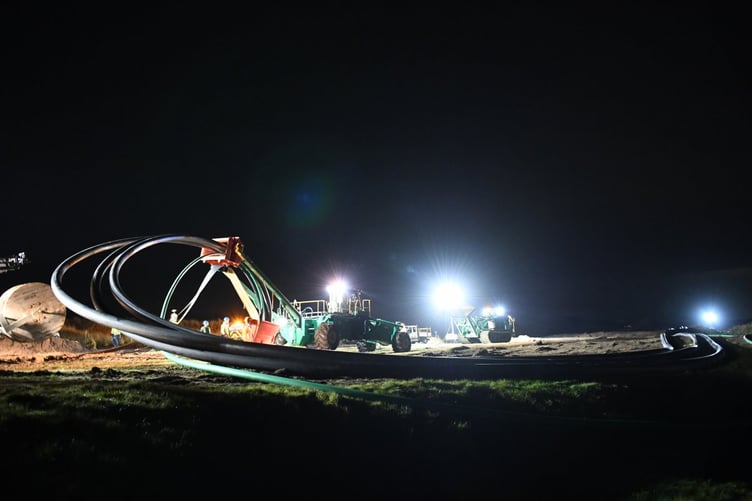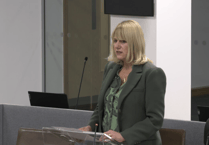The Welsh Government has vowed to fast track planning decisions on green energy developments amid repeated calls for underground cabling through mid Wales.
Wales’ economy secretary Rebecca Evans committed to a sector deal with Wales’ renewable energy industry, which she said will include action to accelerate planning decisions and provide greater clarity.
Ms Evans warned council planning departments were “stripped back” due to austerity as she provided an update on the green economy to the Senedd.
She said: “For their part, I expect the sector to support our ambitions for local ownership and the development of skills and investment in our communities, including the environment.”
The economy secretary said the UK Government’s industrial strategy, unveiled on Monday, identified the role of green industries in driving economic growth.
The minister told the debating chamber that Wales has an onshore development pipeline of more than 5GW, and a further 18GW through fixed and floating offshore wind.
Ms Evans added that the Welsh Government will hold a consultation on carbon capture and storage technologies as well as hydrogen in the coming weeks.
She said: “Wales has its place in history using our natural resources to power the industrial revolution but we enter a new era where the power we need across our economy and wider society supports a new industrial transformation for our economy and our communities.”
However calls not to install pylons across mid Wales, which have been the subject to local protests across the Teifi Valley down to Carmarthen were repeated.
Liberal Democrat MS Jane Dodds invited Ms Evans to visit ATP Cable Ploughing, a firm based in Pencader, operates a specialist machine called a “spiderplow” which allows cables to be installed underground with minimal impact, saying underground cabling should be the default option for future projects.
She said: “Undergrounding our power infrastructure isn’t just about appearance, it’s about resilience. And with more extreme weather events becoming the norm, having a more weather-proof grid is becoming increasingly more important.
“The Welsh Government’s commitment to building a green economy is welcomed but we must go further, particularly when it comes to alternative approaches like underground cabling, in order to give ourselves a chance at futureproofing our energy grid.”
Samuel Kurtz warned Wales is far from unlocking its potential for renewable energy.
Luke Fletcher, Plaid Cymru’s shadow economy secretary, warned of history repeating itself.
“Wales is, once again, being cast in the role of resource provider,” he said.
“Wind, wave, land and sea bed are exploited while the financial gains and innovation returns are largely captured by external actors.”
Calling for more powers, Mr Fletcher pointed out that larger renewable energy projects that exceed 350MW remain outside of Welsh control.
He said the UK Government has roundly rejected calls to devolve the Crown Estate despite Welsh Labour’s support and powers already being given to Scotland.
And Carolyn Thomas raised concerns about fossil fuel companies “greenwashing” as she criticised plans for a “massive” carbon dioxide pipeline from north Wales to Liverpool.





Comments
This article has no comments yet. Be the first to leave a comment.